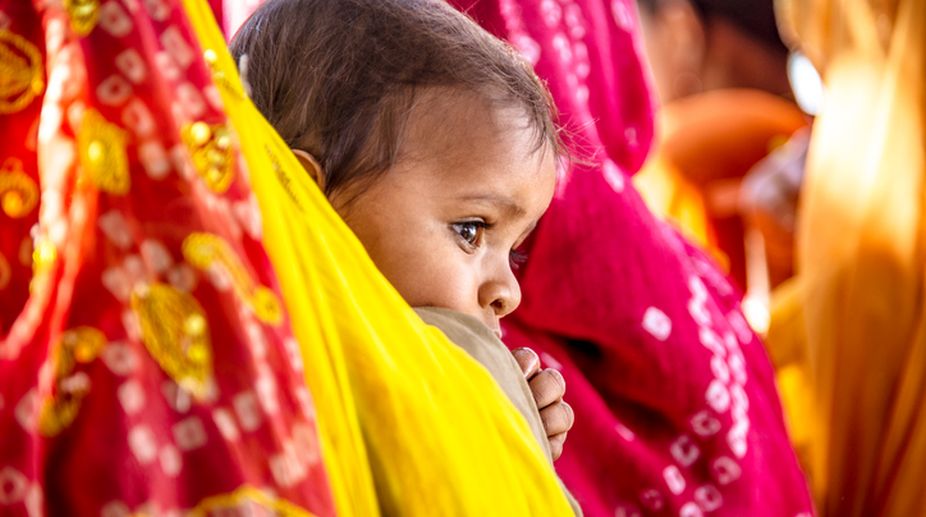A strange custom, now discontinued, in Old Delhi was the blessing by the Bhisti or mashak water-carrier. A woman, accompanied by a child, would bring a laddoo, which the Bhisti would put at a road crossing and pour most of the water in his waterskin on it and sprinkle some on the child, after which the woman would tip him.
The practice was associated with the quick recovery of a child from illness and for the propitiation of the "supernatural keeper" of the crossroads, Bhumia. It was done mostly for kids affected with measles, rickets and malaria or the supposed effect of the evil eye. The Bhisti was just the facilitator in a long-standing custom, in which members of different communities were equal participants. Now one doesn't see this spectacle right in front of the Jama Masjid, probably because there are hardly any Bhistis operating in the area.
Advertisement
Another equally amazing practice was Ghodi Chadna, in which a child was dressed up as a bride or bridegroom, seated on a caparisoned horse and taken up to the steps of the masjid and then brought back home. This "todka" or omen followed the recovery of a kid from a serious illness and was supposed to ensure longevity.
Superstitions have their good points too as they help in building up will-power to get over health, sickness and other problems. That they are dying makes life less colourful in an otherwise mundane existence.
Incidentally, for Ghodi Chadna the mare owner was paid a goodly sum, after which the child's family held a family feast, especially noticeable in the Matia Mahal locality, where a whole lane is known as Saqqa (or Bhisti) Gali. By the way, the proffered laddoo was usually eaten up by a stray dog ~ all the better if it was a black one.











